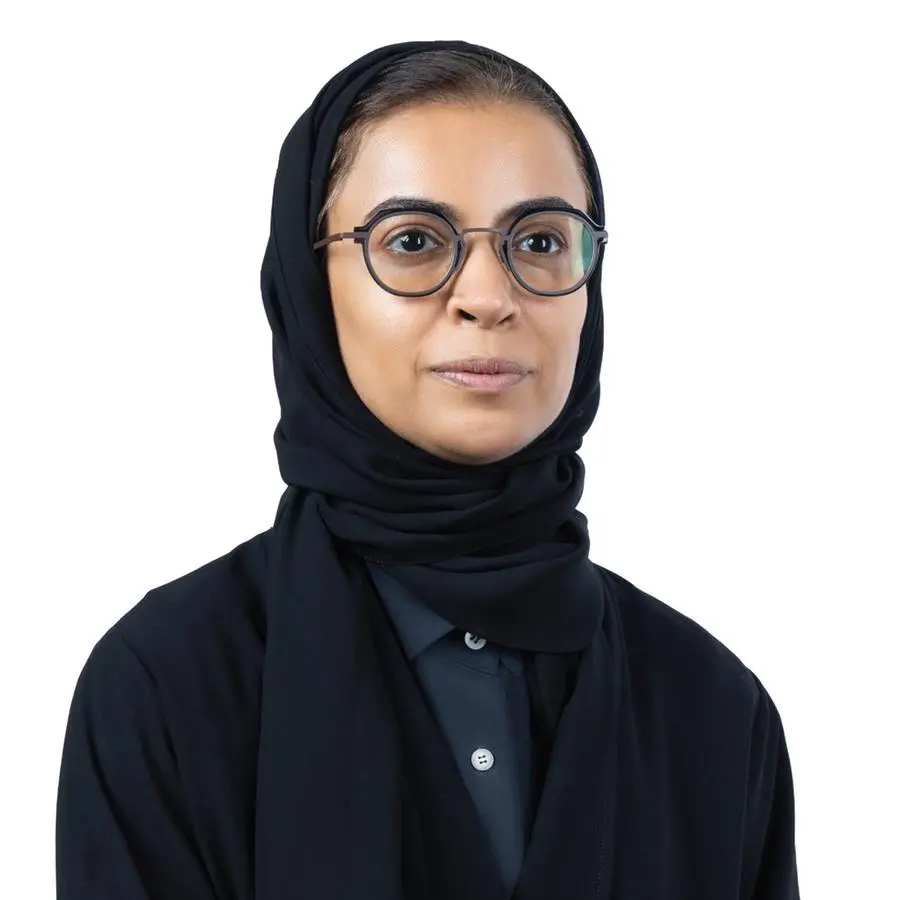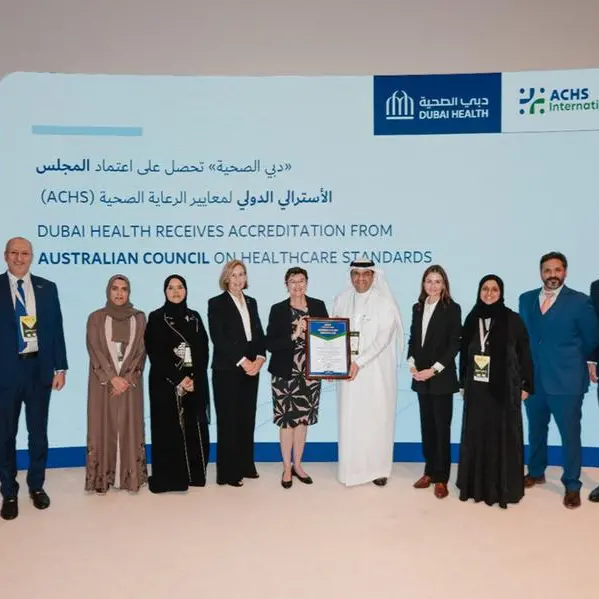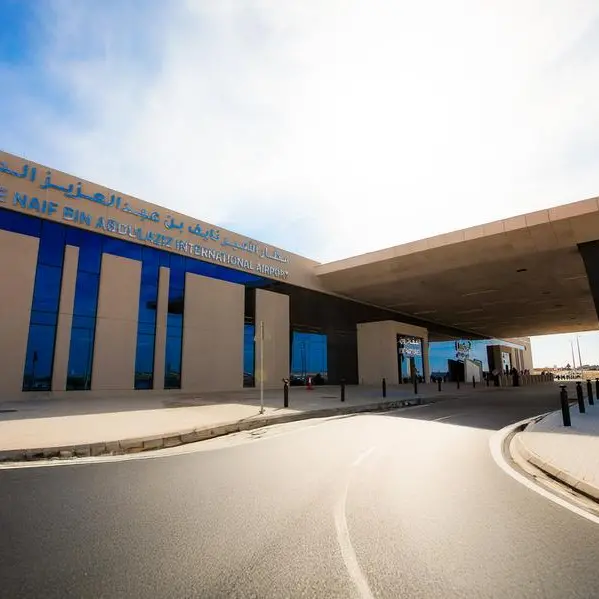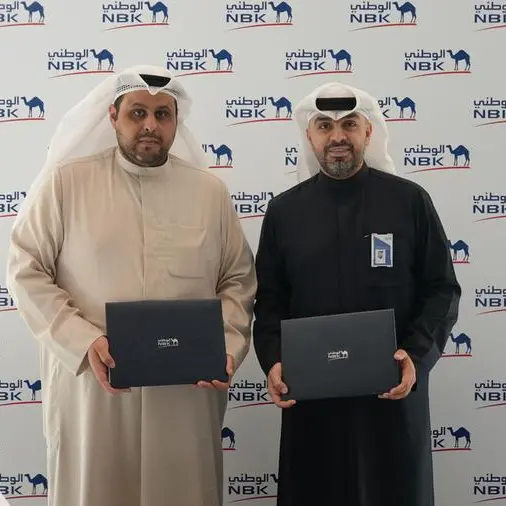Abu Dhabi, UAE – H.E. Eng. Khalid bin Abdulaziz Al-Falih, Minister of Energy, Industry, and Mineral Resources for the Kingdom of Saudi Arabia (KSA) expressed his appreciation for the significant development of the Barakah Nuclear Energy Plant in a recent visit to the UAE. H.E. Eng. Al Falih commended the Emirati workforce who are highly skilled in the nuclear sector and committed to developing their skills and knowledge. H.E. Eng. Al-Falih was briefed on the latest developments of the Barakah Plant, located in the Al Dhafra region of Abu Dhabi Emirate.
H.E. Eng. Al-Falih and his delegation were received at the Barakah Nuclear Energy Plant by H.E. Eng. Mohamed Al Hammadi, Chief Executive Officer of ENEC; Mr. Nasser Al Nasseri, Chief Executive Officer of Barakah One Company; Mr. Mark Reddemann, Chief Executive Officer of Nawah Energy Company; and a number of senior management officials from ENEC and its subsidiaries.
H.E. Eng. Al-Falih headed a visiting delegation from the KSA to participate in Abu Dhabi Sustainability Week and visit the Barakah Nuclear Energy Plant. The delegation included H.E. Dr. Khalid bin Saleh Al-Sultan, President of King Abdullah City for Atomic and Renewable Energy; Dr. Khalid Abdulaziz Al Eissa, Advisor to Minister of Energy, Industry, and Mineral Resources; Eng. Amin Mohammad Alshibani, Advisor to the Minister of Energy, Industry, and Mineral Resources; Dr. Muhammad Ahmad Garwan, Chief Executive Officer of the Renewable Energy Sector at King Abdullah City for Atomic and Renewable Energy; Dr. Maher Alodan, Chief Executive Officer of the Atomic Energy Sector in King Abdullah City for Atomic and Renewable Energy; Eng. Muhammad Saad Assaad, Head of Engineering and Projects Department at King Abdullah City for Atomic and Renewable Energy; and a number of specialists.
During their visit, H.E. Eng. Al-Falih and the members of the delegation were briefed about the operational readiness activities that are ongoing at Unit 1, for which construction was completed in May 2018, as well as ENEC’s Emiratization and human capital development programs. The briefings also highlighted ENEC’s efforts to engage with local companies in order to develop a local nuclear energy supply chain – a key component in developing a sustainable peaceful nuclear energy program.
H.E. Eng. Al-Falih and his accompanying delegation visited the Turbine Building, the Station Reactor Building, and the Main Control Room of Unit 1. H.E. Eng. Al-Falih thanked representatives from the Barakah Plant for organizing the visit. H.E. Eng. Al-Falih expressed his admiration for the progress achieved at the Barakah Nuclear Energy Plant, and the technology used in its construction. Al-Falih was proud to meet the talented Emiratis working on the project and praised their dedication and continuous efforts to gain knowledge and support the future development of their nation.
H.E. Eng. Al-Falih, Minister of Energy, Industry, and Mineral Resources of Saudi Arabia, said: “One of the objectives of Saudi Vision 2030 is the peaceful use of nuclear energy, especially for electricity generation and medical use. We will start using nuclear energy in electricity generation in Saudi Arabia through building two nuclear reactors in the next decade.”
“The success achieved at the Barakah Nuclear Energy Plant reinforced our belief in our capability to build two nuclear reactors in Saudi Arabia. In addition, we believe there is the potential for collaboration between the United Arab Emirates and Saudi Arabia in regulatory, operational, and security matters,” added H.E. Eng. Al-Falih.
H.E. Minister of Energy, Industry, and Mineral Resources of Saudi Arabia, concluded his speech by wishing the UAE officials and the Emirati workforce continuous success.
H.E. Eng. Mohamed Al Hammadi, CEO of ENEC, was delighted to welcome H.E. Eng. Al-Falih and the Saudi delegation to Barakah. H.E. Eng. Al Hammadi said: "At ENEC, we welcome opportunities for collaboration and cooperation with our counterparts in the Kingdom of Saudi Arabia, as it is important to exchange knowledge and share expertise in the nuclear energy sector, which remains relatively new in the Arab World. Currently, the workforce of ENEC and its subsidiaries, the Nawah Energy Company and Barakah One Company, is comprised of experts from over 40 countries, demonstrating our commitment to combining local and international talent to deliver the UAE Program in line with the highest national and international standards.”
"The Barakah Nuclear Energy Plant is being developed according to the highest international standards for quality and safety. The project has achieved many milestones due to our adherence to these standards and our cooperation with the various parties involved, including the International Atomic Energy Agency (IAEA), the World Association of Nuclear Operators (WANO), our Prime Contractor and Joint Venture Partner the Korea Electric Power Corporation (KEPCO), and other subcontractors and partners,” added H.E. Eng. Al Hammadi.
The Barakah project is progressing steadily, with Unit 2 more than 94% complete, Unit 3 more than 86% complete, and Unit 4 more than 78% complete. As of the end of November 2018, the overall construction completion rate for the Barakah plant is more than 91%. The four Units, once operational, will provide around 25% of the UAE’s electricity needs while preventing the release of 21 million tons of carbon emissions annually, equivalent to removing 3.2 million cars from the nation’s roads.
-Ends-
About the Emirates Nuclear Energy Corporation
The Emirates Nuclear Energy Corporation (ENEC) is working to deliver safe, clean, efficient and reliable nuclear energy to the United Arab Emirates - energy that is needed to support the UAE’s social and economic growth.
Established by decree in December 2009 by His Highness Sheikh Khalifa Bin Zayed Al Nahyan, President of the United Arab Emirates, ENEC represents all aspects of the UAE peaceful nuclear energy program.
Driven by a Culture of Safety, ENEC’s overriding priority is ensuring the safety of the UAE community, employees and the environment.
About Nawah Energy Company
A subsidiary of the Emirates Nuclear Energy Corporation (ENEC) and partially owned by the Korea Electric Power Corporation (KEPCO), Nawah has been mandated to safely operate and maintain Units 1 to 4 in Barakah in adherence to the highest standards of safety, security and quality, and to the UAE’s commitment of operational transparency.
About Barakah One Company
A subsidiary of the Emirates Nuclear Energy Corporation (ENEC) and partially owned by the Korea Electric Power Corporation (KEPCO), Barakah One is the company in charge of representing the financial and commercial interests of the Barakah Nuclear Energy Plant project.
For more information, visit www.enec.gov.abudhabi
Media Contact:
© Press Release 2019Disclaimer: The contents of this press release was provided from an external third party provider. This website is not responsible for, and does not control, such external content. This content is provided on an “as is” and “as available” basis and has not been edited in any way. Neither this website nor our affiliates guarantee the accuracy of or endorse the views or opinions expressed in this press release.
The press release is provided for informational purposes only. The content does not provide tax, legal or investment advice or opinion regarding the suitability, value or profitability of any particular security, portfolio or investment strategy. Neither this website nor our affiliates shall be liable for any errors or inaccuracies in the content, or for any actions taken by you in reliance thereon. You expressly agree that your use of the information within this article is at your sole risk.
To the fullest extent permitted by applicable law, this website, its parent company, its subsidiaries, its affiliates and the respective shareholders, directors, officers, employees, agents, advertisers, content providers and licensors will not be liable (jointly or severally) to you for any direct, indirect, consequential, special, incidental, punitive or exemplary damages, including without limitation, lost profits, lost savings and lost revenues, whether in negligence, tort, contract or any other theory of liability, even if the parties have been advised of the possibility or could have foreseen any such damages.



















